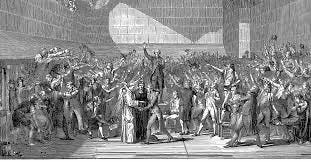The Great Shift – From Left and Right to Inward and Outward
There was a time—not so long ago—that the machinery of democracy was greased by two great ideological engines: the Left and the Right. They argued, they wrestled, they shouted across the floor of parliament or the Senate chamber like gladiators in tailored suits. But for all their differences, they shared a common blueprint: that society was a ladder. The only quarrel was who should be allowed to climb, and how high.
The Left fought for labour, welfare, state education.
The Right fought for markets, liberty, and tradition.
And voters—those oft-forgotten sentinels of the ballot box—chose their side depending on what they needed most: security or freedom.
But that old battlefield is now a relic. A museum piece. A fossil buried beneath the new topography of 21st-century politics.
Today, the great debate is no longer about left or right. It is about inward or outward.
Not socialism versus capitalism, but patriotism versus globalism.
And I must confess—I didn’t quite see it at first. The shift was too quiet, too slippery. Like a fog creeping in over Westminster or Washington. But then I read Yuval Noah Harari’s Nexus, and the landscape snapped into focus. He wrote of a world no longer defined by parties or manifestos, but by the gravitational pull of two opposing poles:
One that looks inward, toward nationhood, identity, heritage.
The other that looks outward, toward collaboration, progress, planetary thinking.
And suddenly, I understood.
Listen to this episode with a 7-day free trial
Subscribe to Jon’s Substack to listen to this post and get 7 days of free access to the full post archives.












